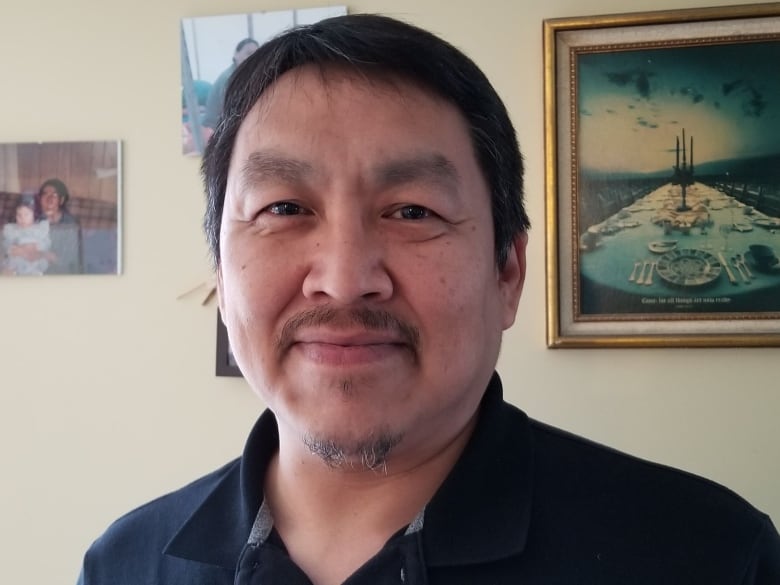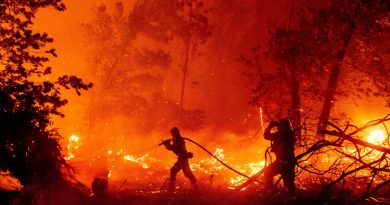Ungava candidates wait for Quebec election call to start campaigns
Quebec has not yet called its Oct. 3 election — by law that must take place on or before Aug. 29 — but the three declared candidates in the Ungava riding, which includes Nunavik, have already positioned themselves for the short campaign.
All three candidates plan to campaign in Nunavik, where all 14 communities are only accessible by air from the southern part of the riding.
Tunu Napartuk, Liberal Party of Quebec
The former mayor of Kuujjuaq, who is fluent in French, has already started some low-key campaigning, speaking to journalists in the southern part of the huge riding and posting on social media.
“As soon as the government decides when the campaign starts, that’s when I’m going to finally going to be able to go out on the road and just put myself out there in people’s hands and take pictures with babies and just get people to know me and who I am and what are my priorities as a person,” Tunu Napartuk said in a recent interview on CBC’s Qulliq radio show.

Napartuk said he plans to campaign “very strongly” within Nunavik.
“People need to hear my voice and that I’m looking forward to represent them,” he said.
Napartuk also said he plans to introduce himself to members of the Cree Nation in the James Bay area and to the largely French-speaking residents of the riding’s southern portion.
The biggest challenge, which could also make or break the election for Napartuk, will be “to get people to actually vote,” he said.
According to Elections Quebec, the voter turnout in Ungava was below that in the rest of Quebec, at 30.9 per cent in 2018.
But in Nunavik, the turnout has even been lower than that, with only two in 10 registered voters in some communities voting during previous provincial elections.
Maïtée Labrecque-Saganash, Québec Solidaire
Maïtée Labrecque-Saganash, the candidate for Québec Solidaire, a social-democratic and sovereigntist political party, lives in the Cree community of Waswanipi.
Labrecque-Saganash comes with name recognition in Ungava: she is the daughter of Roméo Saganash, who represented the federal riding of Abitibi-Baie-James-Nunavik-Eeyou from 2011 to 2019 for the NDP.

Labrecque-Saganash, who has travelled around the riding, plans to come to Kuujjuaq during the campaign.
“We have possible dates set already in our calendar,” she said. “I have a network of people who are going to help set up the signs when elections start and who will help throughout the campaign.”
Labrecque-Saganash’s team will also translate her campaign material into Inuktitut.
But Labrecque-Saganash said it’s unfair that Elections Quebec only allows a maximum of $30,000 for each party candidate to campaign with, given the huge distances in Ungava.
“The plane tickets are super expensive and that’s preventing me from campaigning physically up north,” she said.
Even so, Labrecque-Saganash said she has visited Nunavik often, which has given her a good understanding of the issues.
“But I definitely want to advocate for more expenses allowed during campaigning for the future,” she said. “Nunavimmiut deserve to take part in democracy and candidates should be able to go to many communities to speak to community members.”
Denis Lamothe, Coalition Avenir Québec
Denis Lamothe, the Coalition Avenir Québec candidate and the incumbent representative for Ungava in the National Assembly, said a visit to Nunavik is part of his campaign plans.
Lamothe said that since his election in 2018, he has visited Nunavik 11 times.
Lamothe said he also invited several ministers from the CAQ-led government to visit Nunavik.
“Obviously, had it not been for COVID-19, travel to Nunavik would have been much more frequent,” he said. “Some of the visits planned over the past year have unfortunately had to be cancelled for this reason.”
But he said he was “committing to the population of Nunavik to continue the work that has been undertaken in order to improve the services to the population and the infrastructures, in a perspective adapted to the reality of the field and to the Inuit culture.”
Nunavik is a unique region and so are its challenges, needs and realities, he said.
“High-speed internet, access to justice, housing, public safety, health and education are issues that are present everywhere in Quebec, but which are found in a very different context in Nunavik,” Lamothe said.
“Significant progress has been made on these issues over the past four years, in collaboration with Nunavik authorities and leadership. Nevertheless, much remains to be done.”
Lamothe won the Oct. 1, 2018, election in a judicial recount by 46 votes over the Parti Québécois candidate. The incumbent Liberal candidate was not far behind in third place, coming in 136 votes behind Lamothe.

